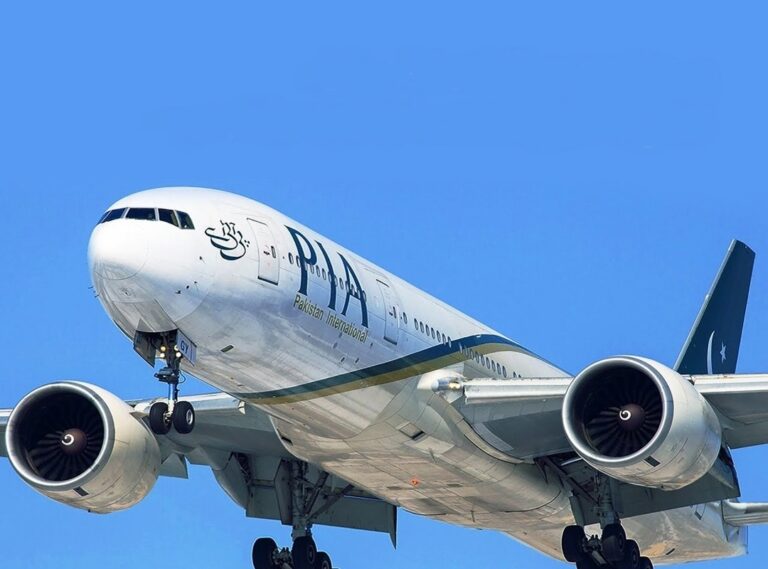
The government of Pakistan has officially reignited its long-stalled efforts to privatize Pakistan International Airlines (PIA), the country’s embattled national carrier, as part of a sweeping reform agenda aimed at reducing state liabilities and restoring investor confidence. This renewed push comes amid mounting financial pressures, a shifting global aviation landscape, and the government’s commitment to structural economic reforms under its agreements with international lenders, including the International Monetary Fund (IMF).
On April 20, 2025, Pakistan’s Privatization Commission announced it had issued a formal invitation to potential investors both domestic and international to express interest in acquiring a majority stake in PIA. This move marks the most significant step in years toward transferring control of the airline from the state to the private sector, and it reflects a clear political will to restructure the struggling flag carrier once considered a pioneer in commercial aviation.
Founded in 1955, PIA once enjoyed a reputation as one of Asia’s most respected airlines, playing a historic role in establishing airlines such as Emirates and contributing to regional aviation development. However, decades of mismanagement, political interference, bloated staffing, and chronic operational losses have eroded the airline’s stature.
Today, PIA is burdened with more than $3 billion in debt, operates at a consistent loss, and has struggled to maintain its international standing, particularly after a damaging 2020 scandal involving pilot license irregularities that led to bans in the European Union and other key markets. With a diminished route network and aging fleet, the airline has become a financial drain on the government, costing billions in subsidies and guarantees.
According to the Ministry of Privatization, the restructuring plan involves separating PIA’s core aviation operations from its non-core assets, such as real estate holdings and subsidiaries. The aviation division PIA Corp. will be offered to strategic investors, while legacy debt and other liabilities will be managed separately by a state-owned holding company.
Federal Minister for Privatization Fawad Hasan stated: We are fully committed to a transparent, competitive process that will attract the best possible investment for PIA’s future. Our goal is not just to sell a failing company, but to ensure the rebirth of a strong, commercially viable airline that Pakistan can be proud of.
The timeline is ambitious, with the government aiming to finalize the privatization process by the end of 2025. The International Finance Corporation (IFC), a member of the World Bank Group, has been engaged as a transaction advisor to assist in the valuation, market analysis, and bidding process.
Early reports suggest that several Gulf-based airline groups and private equity firms have shown preliminary interest in the process, particularly if regulatory hurdles are addressed and operational reforms are enacted. Domestically, there is cautious optimism among industry observers and business leaders, though skepticism remains high due to Pakistan’s uneven track record with privatization and regulatory consistency.
Despite the renewed momentum, the road to privatizing PIA is fraught with obstacles. Strong resistance from labor unions, concerns over job losses, and the complexity of PIA’s liabilities could stall or complicate the process. Public perception will also be a key factor, as selling the national flag carrier could trigger nationalist sentiments and political pushback.
Moreover, the success of this initiative will depend heavily on restoring international safety certifications, reviving key long-haul routes, and modernizing fleet operations—tasks that require significant capital and experienced management.
If successful, the privatization of PIA could serve as a turning point for Pakistan’s aviation and economic landscape. It would not only relieve the government of a major financial burden but also send a strong signal to global investors about Pakistan’s commitment to reform and market openness.
For the millions of Pakistanis who once took pride in flying with PIA, the hope is that this new chapter backed by capable private leadership could revive the airline’s legacy and reconnect it with the standards of service, safety, and innovation it was once known for.
Investor roadshows are expected to begin in major financial hubs including Dubai, London, and Singapore in the coming months. Potential bidders will be given access to financial data and strategic plans through a virtual data room managed by the Privatization Commission and IFC.
As Pakistan moves forward with one of the most complex privatizations in its history, all eyes will be on how the government balances political, economic, and operational pressures to steer PIA into a new era.

